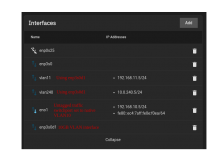Since BETA 2 (and now RC1), I’ve had issues when accessing a local service directly on my TuesNAS Scale server over a routed IP (192.168.0.10 > 192.168.1.5), but on the same subnet no problems (192.168.1.4 > 192.168.1.5). The service becomes unresponsive after about a minute and then I have to reconnect / refresh. I’ve observed this behavior in HTTPS/SMB/NFS/SSH. I expect iSCSI would have this issue, but can’t be bothered to test since the big 4 experience this issue anyway.
However here’s the kicker, I can ping through a gateway all day (granted not TCP and not a state so it is different) and I can access a container (nextcloud) hosted on TuesNAS scale through a gateway, without any issue. My gut tells me, it’s definitely something in the network stack of Scale that’s not happy about something going on.
My gateway/firewall is pfsense, and pretty much default - so it /should/ not be closing states at specific intervals. No other service between subnets is impacted, only those hosted directly on TuesNAS scale.
However here’s the kicker, I can ping through a gateway all day (granted not TCP and not a state so it is different) and I can access a container (nextcloud) hosted on TuesNAS scale through a gateway, without any issue. My gut tells me, it’s definitely something in the network stack of Scale that’s not happy about something going on.
My gateway/firewall is pfsense, and pretty much default - so it /should/ not be closing states at specific intervals. No other service between subnets is impacted, only those hosted directly on TuesNAS scale.

